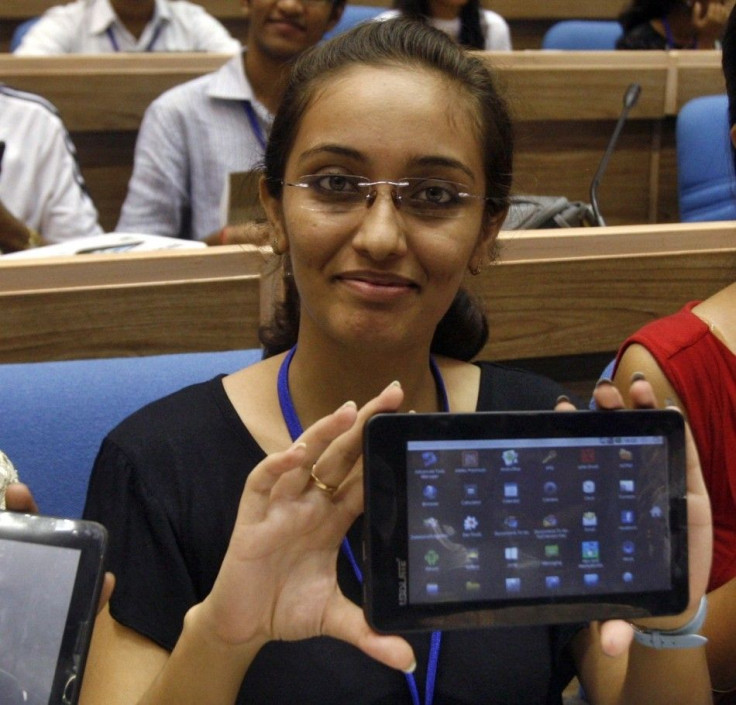Aakash: Why Steve Jobs Would Applaud The World’s Cheapest Tablet
ANALYSIS

Not to be outdone by Amazon's $200 Kindle Fire, the Indian government has released a new tablet computer of its own called Aakash. Starting as low as $35, the Aakash tablet earns the title of the world's cheapest.
Co-developed by Datawind, a small British tech company, and the Indian Institute of Technology, Aakash costs $35 with government subsidies for students, but can also be purchased in stores for $60.
The rich have access to the digital world, the poor and ordinary have been excluded, said Kapil Sibal, communications and education minister of India. Aakash will end that digital divide.
The tablet, which costs about as much as a pair of shoes, features a 7-inch touchscreen, 32 GB of storage, 256 MB of RAM, and runs on Android 2.2 Froyo. Aakash comes pre-loaded with a few apps, but it's not an app platform since it can't access the Android Marketplace. The tablet's 2100 mAh battery will last between two to three hours, but Aakash has been extensively tested in hot 118 degree Fahrenheit conditions to replicate summers in northern India.
The Indian government will give away 100,000 free Aakash tablets during its launch period. The first 500 tablets have already been released, but have received mixed reviews. Some complain the tablets are slow, but when a tablet costs $35, you get what you pay for performance-wise.
The tablets themselves may not be high-quality, but the Indian government ought to be praised for its humanitarian efforts. In this technological day and age, if you don't have access to the digital world, you're at a significant disadvantage. Tablet computers have so much to offer: Computing, Web surfing, e-mail, books and news are all there. And with no keyboard and no mouse, tablets are extremely intuitive alternatives to computers, which can seem cold and foreign to those who don't understand the technology.
Design is not just what it looks like. Design is how it works, said Steve Jobs, the late co-founder and chairman of Apple.
By offering a cheap tablet to its citizens, the Indian government is following in the steps of Jobs and Apple. It was never about the money for Jobs; his wish was to put his technology in everyone's hands, not just those who could afford it. The Indian government may not be close to producing an iPad, and Aakash may not play movies or Angry Birds, but any tablet is better than no tablet for most people.
© Copyright IBTimes 2024. All rights reserved.




















